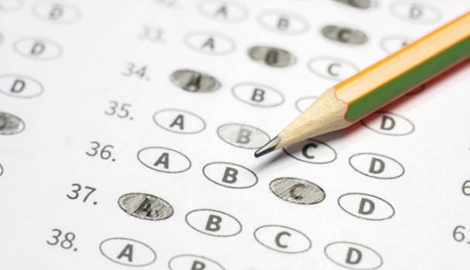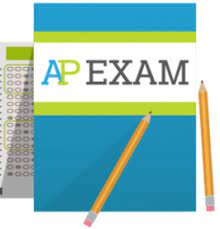Key College Admission Factors
Volume of applications for top tier universities soared from 313,981 in 2018 to 376,065 in 2022 – that’s an increase of nearly 20%. While number of applicants steadily increase, class sizes hold steady. What this means is that the admissions landscape only gets more competitive every year. You’ve probably already figured this out, but good grades and a long list of extracurricular activities no longer cut it.
In order to have the highest chance of gaining admittance to your top choice college, you must arm yourself with comprehensive and accurate information on how committees make decisions. Colleges have a system for ranking or indexing applicants in order to ensure quality and diversity in their student body. While this system varies from college to college, top universities consider very similar criteria in evaluating applications. Keep in mind that the review process is holistic, which means these criteria while distinct, are deeply interrelated.
Our counselors have leveraged their years of experience to break down the key aspects of what makes up a competitive application, along with tips on how to evaluate where you stand in each area.

Rigor of Curriculum refers to the number and level of high school courses completed in the five core subject areas (Math, Science, English, Social Studies and Foreign Language) and academic electives. All selective colleges value students that are not afraid to challenge themselves.
In fact, exposure to a rigorous curriculum in high school is a strong predictor of academic success in college. If available this may include Advanced Placement (AP), International Baccalaureate (IB), and other college level courses, but it is important to keep in mind that your goals, performance, developing interests, and strategic choices, both in and out of the classroom, should influence the rigor of the curriculum you choose to pursue.
Generally, colleges like to see students progress from regular level (i.e. College Placement/Prep) courses to Honors and to Advanced Placement courses when the student is succeeding at each of the preceding levels. However, it is critical to understand that choosing your curriculum is about finding the right balance between your academic and extracurricular endeavors. In other words, you should challenge and push yourself as far as your capacity will allow without compromising your grades or your key activities outside of the classroom.
Because high schools have vastly different ways they weight your GPA, colleges often have a system to recalculate your GPA that involves unweighting your grades and removing non-core courses to create a standardized GPA scale. It should go without saying that colleges value those students who maintain a high core GPA, but they are also interested in your grade trend. This means that while 11th grade is paramount, keeping grades up throughout senior year is equally important as colleges have deferred record numbers of early applicants!
It also means that a student can recover from a less-than-ideal start in 9th grade (some colleges do not even consider 9th grade in their evaluations; e.g. University of California system) by showing a continuous upwards trend in grades throughout the balance of high school.
One important aspect of standardized testing is that colleges use scores to compare applicants from different high schools where rigor and grading may vary. Additionally, there are some colleges that do not require the SAT or ACT, but may use them to help award merit based scholarships. In most cases, colleges that are not requiring an SAT or ACT are awarding merit scholarships without considering SAT or ACT scores.
With so many canceled test dates, colleges and universities have taken the stance to relax their testing requirements and, as of this writing, more than 1,500 colleges and universities around the U.S. are currently test optional. Many will remain that way for at least the next few years and possibly beyond. This is not a new phenomenon. In fact, prior to the pandemic, more than 1,000 colleges and universities were already test optional but another 500 U.S. colleges and universities have joined the ranks of test optional schools and currently more than 200 of them are in the top tiers of schools in their respective categories. Additionally, the College Board has now announced that the SAT optional essay will no longer be offered. It is likely the ACT will follow at some point.
Although they have recently been made more similar, the SAT and ACT remain different tests and some students score significantly better on one or the other. Taking a well-designed and calibrated SAT/ACT diagnostic test can help you fully understand their differences and evaluate which test you are best suited for. Because all colleges accept both tests, choosing to study for one or the other will greatly streamline the preparation process. We do not recommend submitting both tests to colleges.
It used to be that SAT Subject Tests, in areas that closely align with your academic interests, could reinforce high grades and demonstrate commitment. However, SAT subjects are no longer offered.
Now, AP exam scores have taken on more significance in admissions decisions at selective colleges.AP and IB Exams correspond to core subject areas and sometimes specific courses within core subject areas. They provide a mechanism for colleges to assess a students readiness for college level work because they give colleges the ability to compare students on an "apples to apples" basis within their peer groups at their own high schools and around the world. It is more difficult to do that with a students grades because teaching from school to school can vary. In other words, similar to the SAT and ACT, colleges consider these tests to account for differences in rigor and grading at different high schools.
Selective colleges seek an intellectually curious, socially conscious and active student body. Because they are interested in a well-rounded class they prefer students who develop a serious commitment to a few areas of activity rather than dabble in many. They look for commitment over time and growth into leadership (although it is not always necessary) and achievement.
Your choice of extracurricular activities should be a reflection of your interests and goals – a development of your spike. It is your opportunity to prove that you have the potential to someday make a deep impact within your field, and you can’t do that by merely dabbling in different areas. Instead, decide on an area of focus, and build on that.
Because colleges are looking to build a diverse incoming class of attitudes and interests, they are not concerned with how impressive an activity sounds on a resume. Rather, because students have a wide range of interests, they care much more what you make of the activities that you choose to pursue. As a rough guide, strong resumes include leadership, achievement and impact or recognition at the local level, very strong at the state level and exceptionally strong at the national level.
Colleges place hefty importance on your personal essay. It’s one of their main points of reference to get to know your character and writing ability. You will typically be asked to write about a meaningful experience through the lens of you as a storyteller. This essay is incredibly important to colleges because it is a representation of your character, perspective, writing ability and indicator of potential that helps admissions committees form that holistic picture of who you are and how you would fit in on their campus. A common mindset here is, how you write is how you think, which makes this a great opportunity to showcase that you have what it takes to succeed at your college of choice.
To write a compelling personal essay you want to tell a story that illustrates traits central to your identity. Identifying 3-5 character strengths that best describe you can be a good starting point.
In addition to the personal essay, most top colleges require one or more supplemental essays. Supplemental college specific essay questions can be just as important as your personal essay and because prompts can be similar or overlap at different colleges, as soon as your college list is finalized you should create a strategic roadmap for completing all required essays that allows material formed for one essay to be used for multiple application prompts with appropriate customization.
Something often overlooked here is that just like everything else, letters of recommendation are not stand-alone materials in your application. It is important to think about how these letters will strengthen the rest of your application. They should come from teachers or counselors who know you well enough to create a personalized statement of you and your abilities.
Applicants to most selective colleges typically are submitting three different kinds of recommendations. These letters of recommendation are important to colleges because they personalize applicants from an outside perspective beyond the classroom.
Almost all schools require a guidance or college counselor recommendation. The most important question to ask yourself is how well does your counselor know you? Your job is to build a relationship with your counselor over time and help her get to know you both in and out of the classroom. The earlier you start in your high school career, the better.
Your teacher letters should come from two or three of your 11th grade teachers. If possible, colleges want current perspectives rather than the opinions of a teacher you had one or two years earlier. Typically, you want to make sure you have one humanities and one STEM teacher.
Depending on the college, they may allow between zero and five other recommenders. The job of an ‘Other Recommender’ is to discuss the nature of their experience with you, demonstrate your character strengths through specific examples and discuss why you would make a great addition to your desired campus community.
While the interview is not going to make or break your application, your interviewer’s report can reinforce or contradict the rest of your application. It is also yet another opportunity for you to show interest and to let your personality show through off paper.
Few colleges require or offer admissions interviews, so do your research early on whether or not you’ll need to go through the process. Selective colleges want students that are interested in them specifically. We recommend taking advantage of interview opportunities whenever possible.
And if you do, make sure to prepare well. Do research on the college, the program you’re interested in, and look up commonly-asked questions. Also be prepared with answers that bring to focus facets of your personality that you want the interviewer to pick up on. During the interview itself, be professional and mature – dress appropriately, be polite and on time, stay engaged, and be confident, not arrogant.
Selective colleges seek to admit students that are highly interested in attending their college partly because their “ranking” is based on how many admitted students accept their offer.
Demonstrating interest is achieved through on-campus visits and scheduling an on-campus interview during a visit. Taking the time to make a visit shows a college that you are a serious applicant. We all have limited time, but if you are within reasonable driving distance and choose not to visit, colleges have to wonder how interested you actually are.
Most of
Most colleges have three “times of application.” Early Decision, Early Action, or Regular Decision.
Early Decision (ED) means you apply by early fall of 12th grade and receive an admissions decision the same fall. Students may apply ED to only no more than colleges. One in November, and if not admitted, to a growing number of colleges you can apply to a second choice school ED around January 1st. To apply ED applicants are required to sign a binding contract that obligates them to attend the college if admitted. Early Action (EA) means students apply early in the fall of 12th grade and generally receive an admission decision the same fall. Lastly, Regular Decision (RD) means students apply by late fall or early winter of 12th grade and receive an admissions decision in spring.
Much importance is placed on diversity in building out a student body. From an educational standpoint, it has been proven to create stimulating learning environments. From a business standpoint, we live in a time where colleges that ignore diversity run the risk of damaging their reputations. In addition to race colleges may consider levels of parental education, occupations, geographical location and almost every other aspect of a student’s socioeconomic background.
There are some students that are considered VIPs in the college admission process. VIPs may include celebrities, children of major donors, winners of elite academic contests, successful authors and founders of successful businesses. While the previous groups of applicants are extremely rare, colleges also consider athletes recruited to play a varsity sport VIPs.
The key takeaway here is that gone are the days where your 4.0 GPA and fancy valedictorian title were enough to land you admissions into top tier colleges. Admissions officers have to sift through more and more applications every year, and hence become more selective. What this means for you is that your application needs to cover the key criteria committees look at in a way that highlights your authentic personality and strengths. For a deeper dive into these deciding criteria, download our Insider’s Guide to Selective College Applications.












